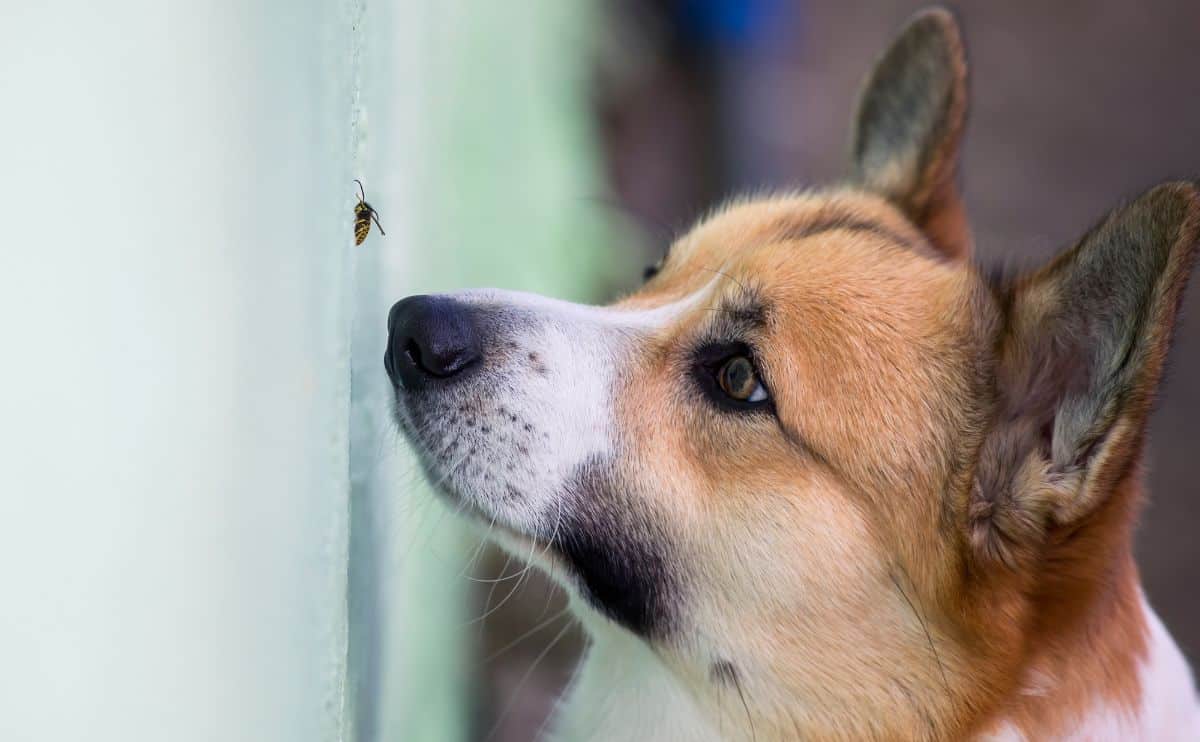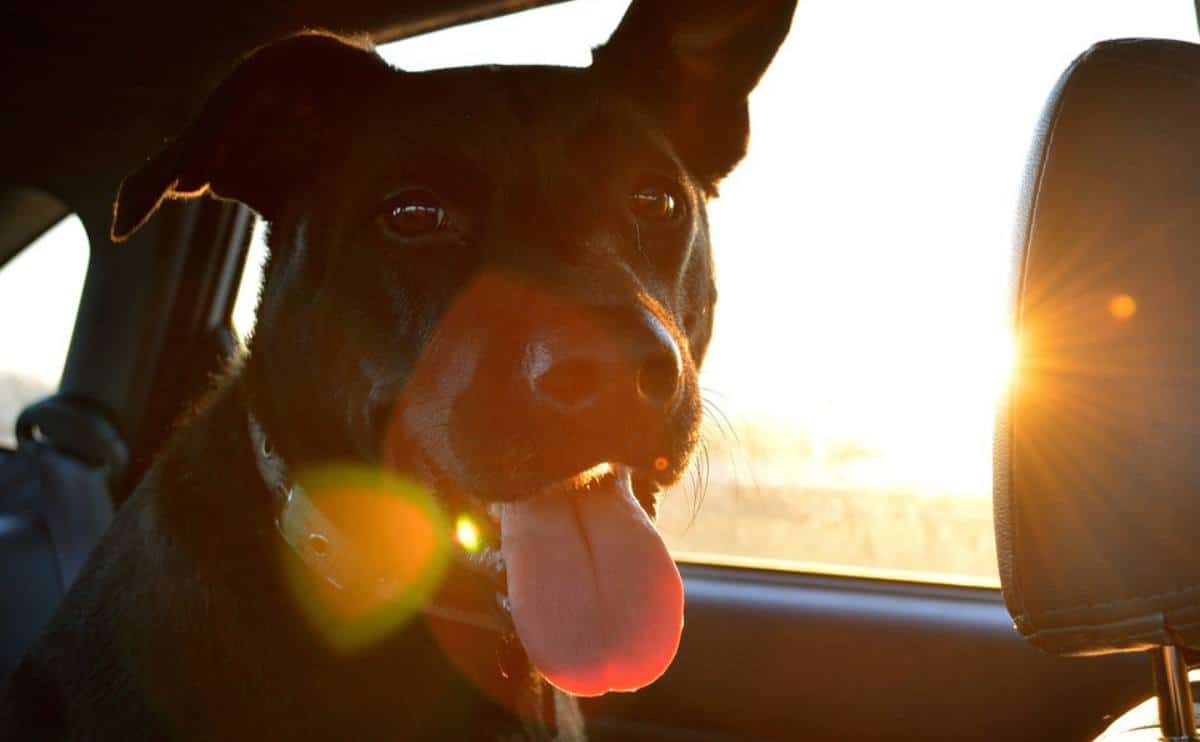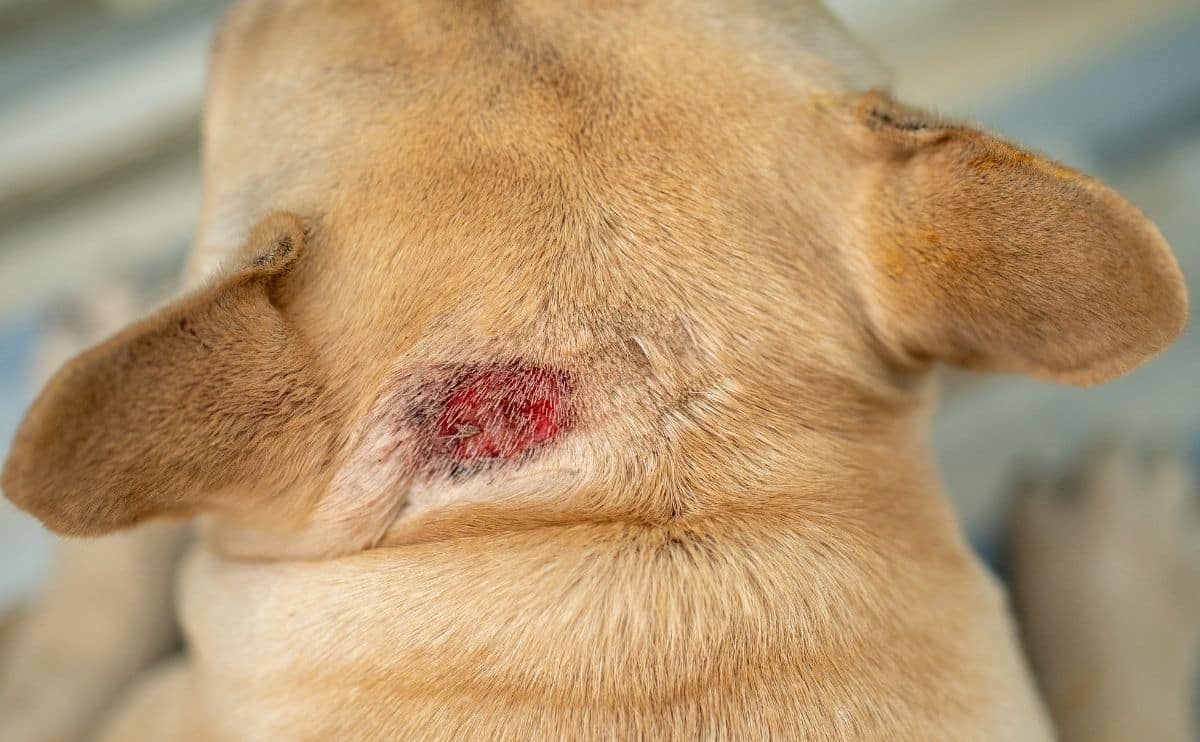Pancreatitis In Dogs: Symptoms, Causes & More
When you purchase through links on our site, we may earn a commission. Here’s how it works.

Pancreatitis, or inflammation of the pancreas, is a painful affliction that affects dogs worldwide. While spontaneous canine pancreatitis is not particularly well understood, veterinarians do have an idea of the causes that contribute to this condition, its related conditions and symptoms, and treatment options to lessen symptoms.
Table of Contents
What Is Pancreatitis In Dogs?
[quick-quote-form title=”Get Free Pet Insurance Quotes”][/quick-quote-form]The pancreas is responsible for producing specific enzymes that promote digestion and enable the body to absorb fats in food. Without the pancreas, dogs would have difficulty absorbing nutrients from food.
The term ‘pancreatitis’ means inflammation of the pancreas. There are two classifications of pancreatitis:
- Acute – Acute pancreatitis occurs with a sudden onset of symptoms with no previous signs of the condition.
- Chronic – Chronic pancreatitis symptoms present more slowly over time. When the condition occurs suddenly in a dog, it takes many owners by surprise and can cause a considerable amount of pain for the affected dog.
Can Pancreatitis Be Fatal?
If your dog has been diagnosed with this condition, your first thought might be “is pancreatitis in dogs fatal?” Pancreatitis, particularly acute pancreatitis, can be fatal in dogs. If a dog suffers from recurrent acute pancreatitis, the inflammation can spread to other organs and lead to potentially fatal complications like blood clotting disorders and perforation of the intestines.
What Are The Symptoms Of Pancreatitis In Dogs?
Symptoms of pancreatitis in dogs vary according to whether the disease is mild or severe. Be aware that dog pancreatitis symptoms can also be observed with other diseases in dogs.
Mild Pancreatitis
- Distention or pain in the abdomen
- General discomfort or inability to find a comfortable place to lie down
- Flinching or whining when you touch their abdomen (also a symptom of Canine Bloat, a serious condition that requires immediate medical attention)
- Dehydration
- Lack of appetite
- Appearing hunched over when standing or walking
- Vomiting
- Diarrhea that’s greasy and yellow in color
- Fever
Severe Pancreatitis
Dogs that are experiencing more severe cases of pancreatitis may display the symptoms listed above; however, it’s more likely that they’ll exhibit more serious symptoms that, if left undiagnosed and untreated, can be life-threatening. Some of these more serious symptoms include:
- Disseminated intravascular coagulation (a dangerous combination of abnormal blood clotting and internal hemorrhaging)
- Heart arrhythmia (or irregular heartbeat)
- Sepsis (a body-wide infection that occurs when toxins are released into the blood)
- Difficulty breathing
In the most extreme cases, pancreatic enzymes can digest the pancreas and surrounding organs. Once organs become partially digested, the damage is irreversible.
What To Do If Your Dog Has Symptoms Of Pancreatitis
The first thing you should do is call your vet or an emergency vet if it’s after hours. If your dog is stable, your vet may ask you to bring your dog in immediately. If your dog is not stable, your vet may come to you or make another suggestion.
It’s crucial that you act quickly if your dog is showing symptoms of pancreatitis. This condition can deteriorate quickly, leading to severe pain and even death.
How Will My Vet Diagnose Pancreatitis?
Many important factors play into an accurate diagnosis, including your dog’s medical history, a physical examination, and laboratory testing.
Pancreatitis in dogs does not have a lot of specific signs or laboratory test results, so the diagnostic process can be extensive to make an accurate diagnosis of the disease. A vet will also help you identify signs of worsening pancreatitis in dogs and what to keep an eye out for.
My Dog’s Medical History
A dog’s medical history is important because dogs that have experienced a bout of pancreatitis once are more likely to experience it again during their lifetime. Other aspects of your dog’s history that could increase the risk of pancreatitis include surgery, diet (high-fat diets), and trauma. Lastly, any current medical conditions may also affect your dog’s diagnosis.
A Physical Examination
The physical exam will consist of visually examining your dog’s stomach area and palpating it gently to check for bloating and tenderness. Your vet will also check your dog’s gums, take your dog’s temperature, listen to his heart, and look into his eyes and ears to check for any other signs of illness.
Laboratory Testing
Laboratory testing involves drawing blood to look for several “clues” concerning pancreatitis. An increased white blood cell count and elevated lipase and amylase (pancreatic enzymes) can lead to a diagnosis. Vets may also test for liver enzyme levels and perform x-rays and ultrasounds.
A blood test called the canine pancreatitis lipase immunoreactivity test has been shown to provide an accurate diagnosis of pancreatitis.
Surgery
Surgery to obtain a sample of the pancreas is the most surefire way to diagnose pancreatitis, but most affected dogs are too sick and unstable to undergo surgery.
Treatment
Treatment for pancreatitis in dogs is required. In severe cases, dogs need to be hospitalized. Dogs with milder pancreatitis still need treatment but don’t necessarily have to be hospitalized.
Treatment for pancreatitis is supportive and symptomatic, meaning that the treatments will treat the symptoms and help a dog feel more comfortable as they recover. Dog pancreatitis treatment at home and at the vet can include:
- Pain relievers
- Antibiotics
- Anti-inflammatory drugs
- Medications to treat vomiting and diarrhea
- 24 hours without food and water to rest the pancreas, then slowly introduce food and water
- Bland, prescription dog food that is low in fat and highly digestible
- Intravenous fluids to restore hydration and electrolytes
How To Comfort A Dog With Pancreatitis With CBD Oil & Treats
Many pet parents ask if CBD oil can help treat pancreatitis. There are many benefits of CBD oil, including its ability to help ease pain, reduce chronic inflammation and anxiety, and more. Talk to your vet about using CBD oil for pancreatitis in dogs.
However, the severe nature of pancreatitis makes it crucial for affected dogs to receive only veterinary care without a complementary therapy like CBD.
Avoid Do-It-Yourself Treatments
While many pets benefit from holistic medicine and natural treatments, there are times when a vet should evaluate some conditions.
It’s crucial that you never attempt do-it-yourself treatments, such as tips read on the internet or “cures” that work for people; dogs and humans are not the same, and they do not respond similarly to certain foods and chemical substances. While you may think that you’re administering a “calming herb” to your dog, you may actually be worsening their condition or even poisoning them. This is a serious condition and should always be assessed by a veterinarian.
How To Prevent The Recurrence Of Pancreatitis
If your dog has ever suffered from a bout of pancreatitis, it will likely experience a recurrence. Recurring episodes can be mild or severe, regardless of the severity of the original occurrence. Below are some tips that vets offer to help reduce the chance of recurrence.
- Reduce food intake and increase the exercise level of an overweight dog. Make sure not to underfeed or over-exert your dog to help them lose weight, though. Weight loss should be slow and steady. We also have recommendations for food that could benefit a dog with pancreatitis.
- If your dog experienced a severe episode of pancreatitis that left his pancreas damaged, consider giving your dog digestive enzyme supplements that would help the pancreas not work so hard to secrete digestive enzymes.
- Avoid feeding any human foods to dogs. Many human foods, particularly table scraps, are high in fat, which can prompt an episode of pancreatitis.
- Feed multiple small meals during the day rather than feeding one large meal. This reduces the strain put on the pancreas during digestion and lessens the likelihood for certain breeds to develop canine bloat.
- If your veterinarian suggests keeping your dog on a low-fat diet, ensure that you comply to maintain healthy lipid levels in your dog’s body. High lipid levels can result in aggravation of the pancreas.
What Causes Pancreatitis In Dogs?
While no one knows exactly what starts pancreatic symptoms, there are some potential risk factors. It may be as “simple” as a medication your dog is taking.
In other instances, you may have to go through many questions and answers before knowing what started the symptoms. It’s important to try to narrow it down so you can reduce the risk of another episode of pancreatitis. You may find that the food you’ve chosen to feed your dog is simply too high in fat or that it was table scraps that caused the trouble.
The process of diagnosing pancreatitis will help you figure out what might have caused pancreatitis in your dog.
There are some things that the veterinary community believes contribute to the development of this condition.
Dogs who are:
- Overweight
- Female
Dogs suffering from:
- Hypothyroidism
- Diabetes
- Certain bacterial or viral infections
- Hyperadrenocorticism, also known as Cushing’s disease
- Epilepsy
- Gastrointestinal tract disease
- Idiopathic hyperlipidemia
- Ingestion of a single, high-fat meal
Pancreatitis In Dogs Infographic

Pet Insurance Can Help Cover Vet Expenses
Costs can stack up quickly for all of the testing and vet care your dog may require if diagnosed with pancreatitis. Pet insurance can help protect your wallet, so you can focus on nursing your dog back to health. Find out whether you should consider pet insurance for you and your pet.



